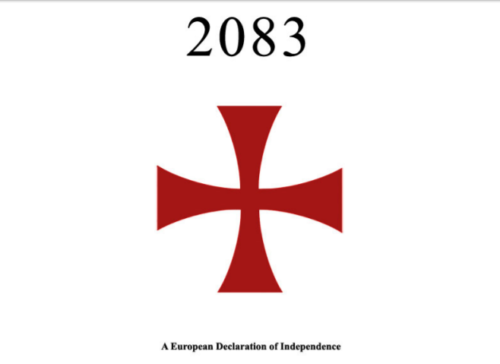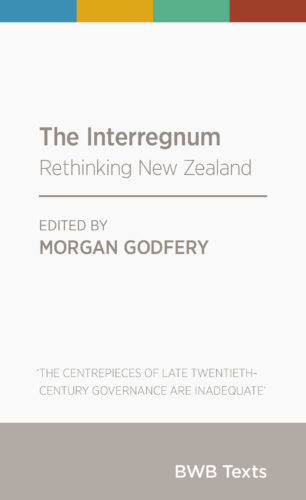
This reading is the final one in this section, and completes our reading of 2083: A Declaration of European Independence. It carries on from here.
This final section of the document (pages 1414-end) is mostly given over to a diary-style account that Breivik wrote when he was planning his operation. It describes in detail his thoughts leading up to the event and the caution he took in order to go undetected until the final moment.
It reads eerily because of a combination of a few things, especially the ordinariness of the vast majority of Breivik’s thoughts when contrasted with the murderous intent and fanatical devotion with which his deed was planned. Hannah Arendt’s comment about “the banality of evil” comes frequently to mind.
Most of the concerns and anxieties that he describes here are simply everyday concerns. One passage about the tediousness of email farming could have been written by any non-violent person, and another passage about Breivik being forced to overcome his fear of spiders might even be endearing if the reader hadn’t already gone through 1,450 pages of justification for shooting teenagers.
This section is actually capable of being self-consciously dark and comical, such as when Breivik is describing the difficulties he initially encountered trying to buy black market firearms in Prague, when his typically Norwegian frankness brought instant paranoia to the criminals he was trying to do business with.
All in all, it’s things like this that make this document so unsettling. Breivik is clearly capable of sophisticated humour and was apparently able to make friends and socialise without anyone realising what he was planning. With his references to social competition and a great future ambition he seems unbelievably normal – most of the friends he references have serious girlfriends and/or professional jobs.
This is a common sentiment for people who have known serial killers and the like, and were astonished by how normal they seemed. After all, Breivik killed over 70 people, which is more than other infamous killers like Ted Bundy and John Wayne Gacy. So it’s reasonable that many people would be surprised and astonished when they saw on the news that someone they knew and considered normal did such a thing.
A question about gun control is raised in this section. If Breivik purchased a semi-automatic rifle legally under stringent Norwegian gun control laws, and still managed to kill more people in one incident than has ever been managed by an American terrorist in the entire duration of that country and its long love affair with firearms, then what’s really going on?
At one point, Breivik relates a discussion with a Marxist friend at a party, where Breivik asks: “Don’t you consider yourself to be a hypocrite considering the fact that you support mass Muslims immigration and at the same time refuse to actually live with them?” It’s a question that many young Western people have asked themselves of the middle-class left.
If a person would start to read this manifesto with a certain idea in their head about Breivik being a neo-Nazi and Nazis being simple but emotional people, they would get a completely different idea by the finish. Breivik is genuine when he claims to despise Nazis, for the reason that Nazis would soon get rid of people like him, a “cultural conservative” who considers Israel a brother nation.
Breivik is not a Nazi, and neither is he a thug. There are grammatical errors characteristic of a native Scandinavian speaker throughout the text, but at the same time there are few people who would be capable of compiling a mostly coherent 1,500 page document in a foreign language.
Also striking is the fact that Breivik made over $1 million over the course of five year through a variety of entrepreneurial schemes that would have taken good intelligence and great personal drive and commitment to complete.
This paints a picture of Breivik as a member of the class elite in many ways. He was physically, financially, socially and intellectually (to say he was ‘mentally’ healthy would be pushing it) in excellent shape.
Perhaps here the signs of his downfall can be first observed – in one passage he describes himself as someone with “basically the perfect body”, and at no point in this document does he express an appreciation of or reverence for any other person, apart from vague historical figures.
Also telling is the fact that no romantic engagement with a woman is ever mentioned. Breivik mentions partying with Norwegian friends and their girlfriends, but at no point does he mention a girlfriend himself, a desire for a girlfriend, or getting laid (beyond the need to breed children to counter Muslim rates of breeding). It’s possible that his narcissism made him lonely on account of making him intolerable to women.
When all the signs are put together, Breivik is clearly a monstrous narcissist, which is perhaps from where he got the willpower to reject the socially accepted history and modes of thinking and arrive at an intelligent and accurate conclusion.
It’s perhaps also possible that being one of the few people in his social circles to appreciate the iron-cast logic of Muslims eventually becoming a majority in some European countries if current trends continue, Breivik suffered from a profound sense of alienation and isolation. It’s an extremely difficult experience to be the one person who can see the truth while the masses rip you down for speaking it. This may have caused him to become bitter, resentful and vengeful.
In the final analysis, it’s more than possible to put aside the narcissism and the murders and to consider Breivik’s unusual perspective on its own merits. Dismissing this document on the grounds that a murderous narcissist wanted it read is to fall victim to precisely the kind of logic dismantled in the document itself. It would represent the intellectual cowardice that gives rise to someone like Breivik in the first place.
After all, Breivik’s political complaints are entirely reasonable, even if his conclusions are not. The real danger is that people with entirely reasonable conservative beliefs are radicalised into violence on account of the utter refusal of the left to engage with them civilly in favour of adopting “Punch a Nazi” style thuggery. A refusal to honestly talk will lead to violence, so any leftist with an honest sense of duty to keep peace and good order in society has to at least consider this question.
*
This is the end of this segment of VJMP Reads. Now we have put to the readers on our FaceBook page the question of which book to read next.


